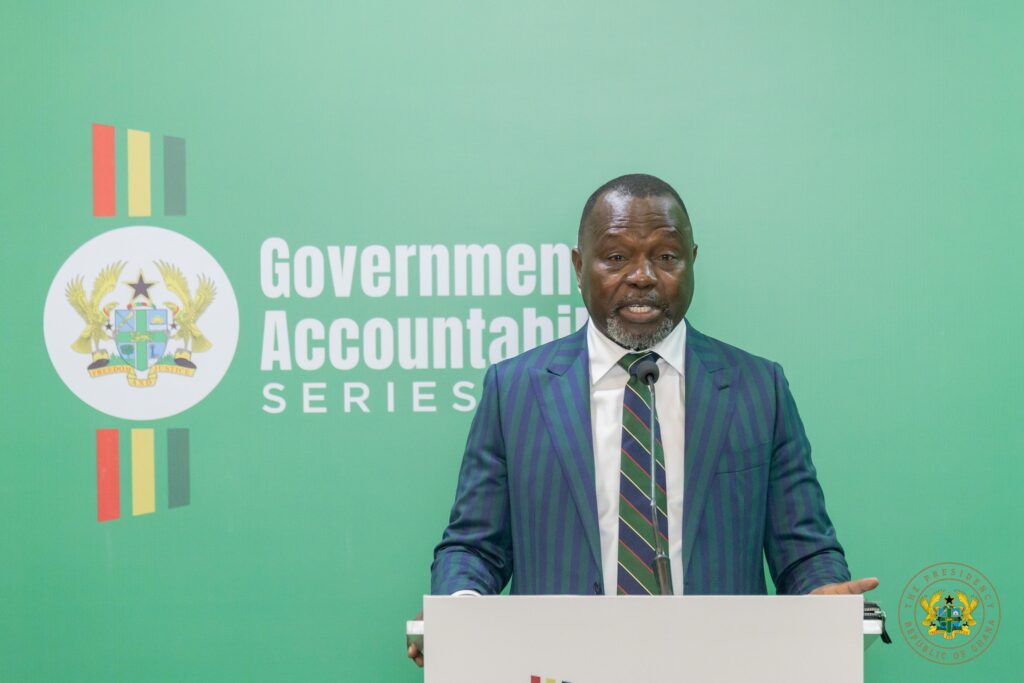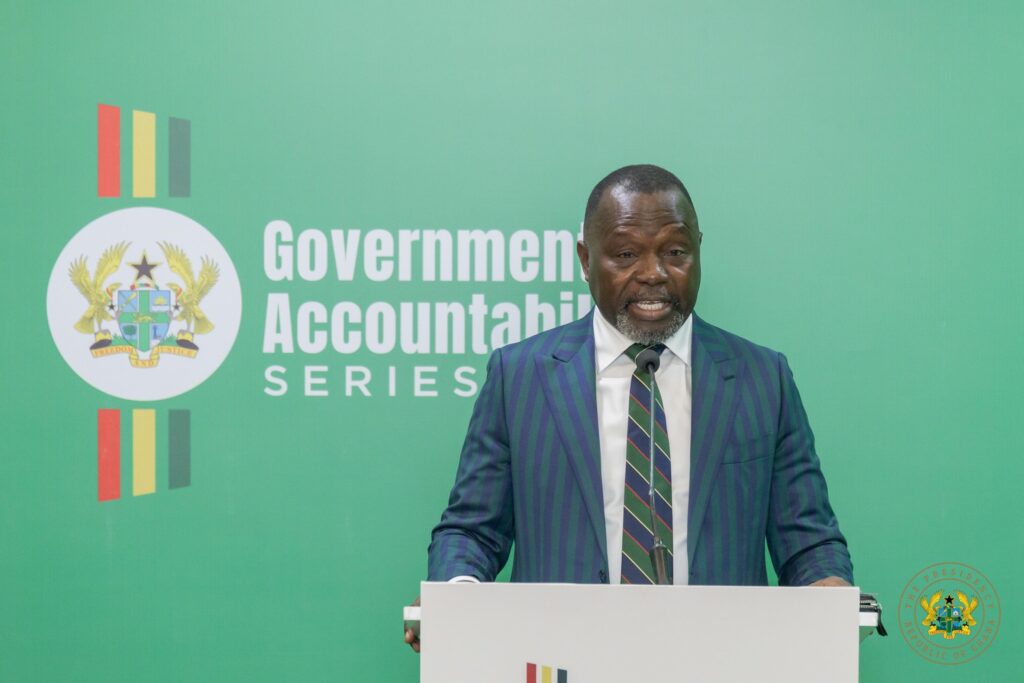Ghana’s Attorney-General and Minister for Justice, Dr. Dominic Akuritinga Ayine, has announced that a bill to abolish the current Ghana School of Law system and expand legal education in the country is ready and will be submitted to Cabinet next month.
Speaking at the Government Accountability Series, Dr. Ayine said the proposed reforms aim to significantly expand access to legal education and streamline the process by which aspiring lawyers are called to the Bar.
Dr. Ayine described the current system as a major bottleneck that has left thousands of LLB graduates unable to enter the legal profession.
“We have thousands of LLB holders who cannot become lawyers because they cannot enter the Ghana School of Law. With respect to the promise to reset legal education, that is very, very important. And that promise is that we are going to reform legal education in such a way that access will be expanded.”
Attorney-General and Minister for Justice, Dr. Dominic Akuritinga Ayine
According to the Attorney-General, the proposed legislation will effectively dismantle the Ghana School of Law’s current gatekeeping role by decentralising professional legal training.

The new framework, he explained, will replace the centralised post-LLB admissions process with a broader system embedded within the same institutions where students obtain their undergraduate law degrees.
“Basically, what we are going to do is that you will have three years of legal education to obtain your degree—that is the LLB. After obtaining the LLB degree, you now do what we call either the Clinical Legal Program or the Bar Practice Course in the university where you got your LLB for another academic year.”
Attorney-General and Minister for Justice, Dr. Dominic Akuritinga Ayine
Introduction of National Bar Exam
Under the proposed system, students who complete the Bar Practice Course at their university will automatically qualify to sit for the National Bar Examination, which will serve as the final determinant for entry into the legal profession.
This shift, Dr. Ayine said, is inspired by the structure of professional accounting certification in Ghana.
“So it will be like what the Chartered Accountants do. Once you qualify to write the examination, the Chartered Institute of Accountants will administer the exam, and everybody can write. And if you pass, you become a chartered accountant; that is exactly the same thing that is going to happen in order to expand legal education in the country.”
Attorney-General and Minister for Justice, Dr. Dominic Akuritinga Ayine

Dr. Ayine emphasised that the goal is not to lower standards but to democratize access. By rooting the Bar Practice Course in the various law faculties across the country, and replacing the highly restricted Ghana School of Law admissions process with a uniform national examination, the reforms aim to make the process more equitable and merit-based.
The Attorney-General also revealed that the legislative process is well advanced, disclosing that the final draft bill has been forwarded to his Deputy Attorney General and Minister for Justice, Dr. Justice Srem Sai, to review and then give his input before the bill is finally submitted to Cabinet.
Dr. Ayine’s announcement comes at a time of mounting public frustration with the current legal education regime in Ghana. In recent years, mass rejections of qualified applicants to the Ghana School of Law, limited intake quotas, and a lack of transparency in entrance examinations have sparked protests and petitions from law graduates, civil society groups, and members of Parliament.
The reforms proposed by Dr. Ayine could mark the most far-reaching attempt yet to overhaul the system and address these longstanding grievances.
Although the full details of the bill are yet to be made public, the broad structure outlined by the Attorney-General signals a paradigm shift in legal training—moving from a centralised, exclusionary model to a decentralised, competitive, and inclusive framework.

The legal education reforms are also consistent with broader government promises to improve access to professional and tertiary education across Ghana.
The National Bar Exam, once introduced, could become the single standard for entry into legal practice—changing not just how lawyers are trained, but also how justice is served in the years to come.
If the proposed bill is approved by Cabinet and passed by Parliament, it could allow the new framework to be implemented as early as the next academic cycle.
READ ALSO: President Mahama Pays Tribute to Daddy Lumba



















